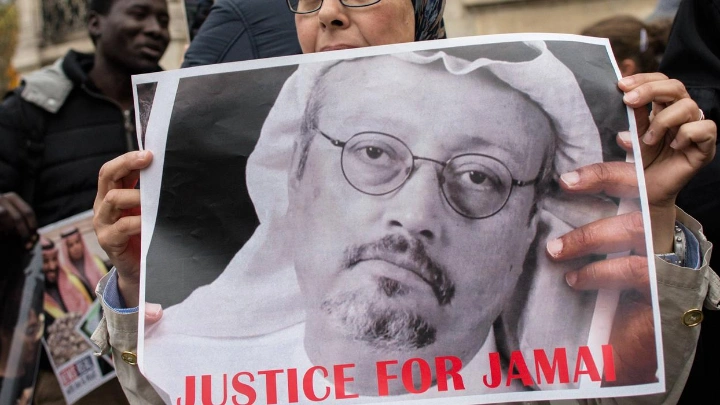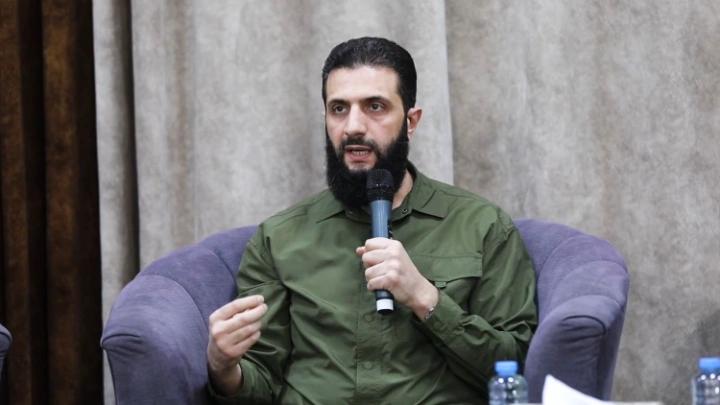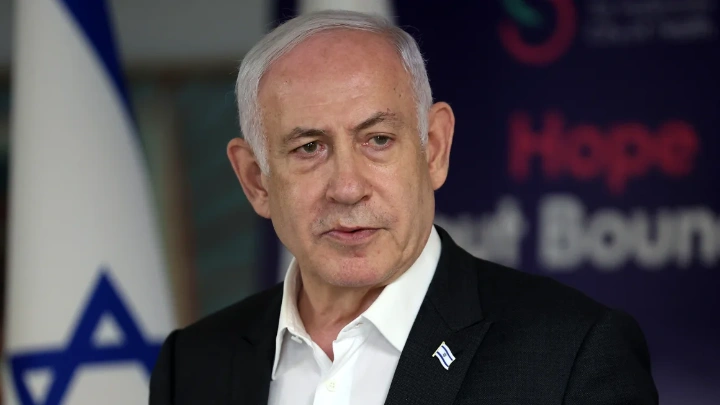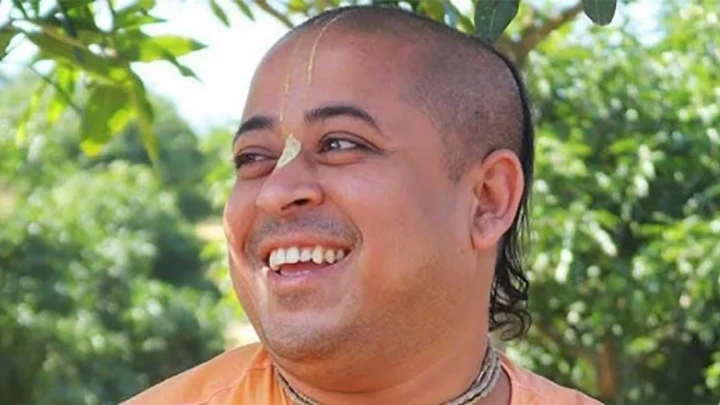Seeking justice for Jamal Khashoggi
Shining BD Desk || Shining BD
The murder of Saudi journalist Jamal Khashoggi is one of the cruelest political killings of recent years. So far, the masterminds have not been convicted, but a US civilian court could change that.
From a Saudi point of view, a royal decree stipulating that Saudi Crown Prince Mohammed bin Salman (MBS) would also take over the post of prime minister from his father may have been a smart move. Since the appointment at the end of September, Saudi Arabia's crown prince stands protected from possible prosecution in the United States.
After the murder of Saudi dissident and journalist Jamal Khashoggi on October 2, 2018, his fiancee Hatice Cengiz and the Khashoggi-founded Democracy for the Arab World Now (Dawn) human rights organization, filed a lawsuit in the US in 2020 against MBS and others, accusing them of involvement in the killing. The plaintiffs have also made personal claims, alleging that Cengiz suffered personal harm as well as financial losses as a result of her fiance's murder.
Bin Salman insists on immunity to evade prosecution
Bin Salman's lawyers claim that his appointment as prime minister grants the crown prince immunity. Accordingly, they have demanded that the court in the US dismiss the case. A US court is expected to rule on the matter on Thursday. So far, the US has also not declared whether it will actually grant Mohammed bin Salman immunity.
 Mohammed bin Salman aka MBSImage: Bertrand Guay/AFP/Getty Images
Mohammed bin Salman aka MBSImage: Bertrand Guay/AFP/Getty Images
In 2020, Saudi Arabia tried five of the alleged Saudi killers and handed down the death sentence, which was eventually commuted to 20 years in prison. However, according to various reports, the convicts are said to be living in a luxury complex near Riyadh. Saudi deputy intelligence chief Ahmed al-Asiri, and Saud al-Kahtani, a former adviser to the crown prince, were not prosecuted.
Final hope for justice for Khashoggi
The last hope for justice vanished in April 2022, when Turkey transferred the case against 26 Saudi defendants to Riyadh. Human rights activists said the move spelled the end to hopes for justice for the murdered journalist. Hatice Cengiz, however, believes that rights are not lost as long as someone demands them. "A country that kills innocent people must be condemned," the 40-year-old journalist and Middle East expert said in Berlin earlier this month, where she had had been invited to give a lecture hosted by the Helmut Schmidt Foundation.
Cengiz's hope lies in the civil suit filed in the US, even if she knows that realpolitik means that in a world in turmoil, erstwhile pariahs can become partners again.
Khashoggi's murder will never really be fully investigated, according to Eckart Woertz, director of the Hamburg-based GIGA Institute of Middle East Studies. "I think the idea that MBS will be tried and convicted in the US is unrealistic," he told DW.
Tense Saudi-US relationship
The relationship between Saudi Arabia and the United States is currently characterized by ups and downs. Before Joe Biden took office as US president, he said he would treat Saudi Arabia as a "pariah state" over Khashoggi's murder. But as recently as July, Biden and Crown Prince Mohammed bin Salman set aside their differences in the face of the global energy crisis and ushered in a new era of cooperation.
Now, however, the US is extremely angry with the Gulf kingdom again because of the OPEC+ decision to produce two million barrels less oil per day from November. Saudi Arabia and Russia are thought to be the leading forces in the oil alliance. The Biden administration has interpreted the move as direct support for Russia in the Ukraine war because the resulting increase in oil prices will make Moscow more money.
Khashoggi: killed, cut to pieces, vanished
All the same, US President Joe Biden's approach is one of realpolitik, Woertz said. "Saudi Arabia and the United States have common interests, for instance concerning Iran." The US also continues to do business with the kingdom and supply weapons.
 A new street sign in front of the Saudi Embassy in Washington,D.C.Image: Ken Cedeno/UPI Photo/IMAGO
A new street sign in front of the Saudi Embassy in Washington,D.C.Image: Ken Cedeno/UPI Photo/IMAGO
Jamal Khashoggi used to have close ties to the Saudi royal family. Over the years, however, he became increasingly critical of the government's policies and Mohammed bin Salman in particular. In 2017, he moved to Washington D.C. and on October 2, 2018, he was murdered at the Saudi consulate in Istanbul, where he had an appointment to obtain documents ahead of his marriage to Hatice Cengiz, a Turkish citizen. According to official statements from Turkey and the US, a 15-member team from Saudi Arabia that was waiting at the consulate murdered and dismembered him, before letting the remains disappear without a trace.
After Biden took office, the US government released a CIA intelligence report alleging that Saudi Arabia's crown prince had sanctioned Khashoggi's murder. A UN report also indicated that the Saudi leadership was responsible for the murder. Riyadh rejects the allegations, saying that the Saudi perpetrators acted on their own. Despite the two reports, the US president has yet to hold MBS accountable.
Cengiz: 'These politicians don't deserve respect'
"Four years have passed, throughout which I experienced real politics," Hatice Cengiz told her audience in Berlin. "I am now personally acquainted with the concepts of the global system, trade-offs behind closed doors, countries' economic interests and the balance of power."
She said that she felt sorry for these politicians, adding that it was shameful for them and that they did not deserve respect.
Hatice Cengiz and the Dawn organization also accuse the Saudi crown prince of pursuing political motives when he had Khashoggi murdered. The aim was to bring to a standstill the journalist's efforts to bring about democratic reforms in the Arab world.
Currently, the mood for people working for justice and freedom is decidedly gloomy. MBS has continued to arrest and imprison dissidents, journalists and activists. Most recently, the case of Salma el-Shebab, a young Saudi student sentenced to 34 years in prison for sharing posts by women's rights activists on Twitter, led to international criticism.
Hatice Cengiz has made it her mission to travel the world and speak for those who no longer have a voice. "My words are my power," she told DW, adding she cannot be silent. Hatice Cengiz refuses to give up the fight for justice.
By Diana Hodali
Shining BD
























